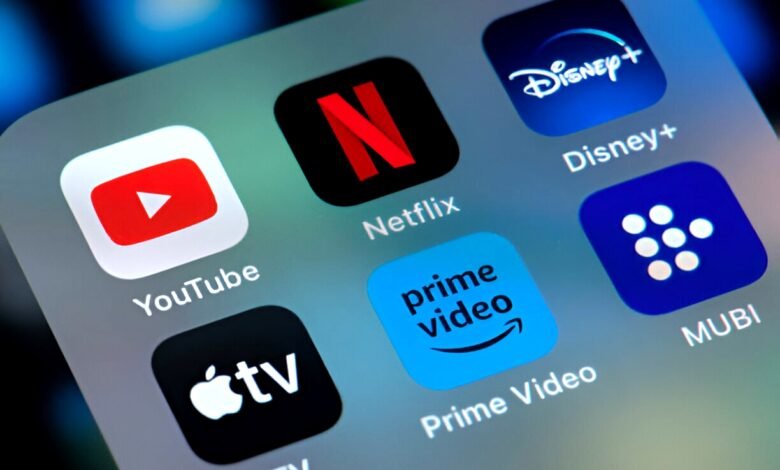How Streaming is Changing the UK Entertainment Industry
In this article, we’ll explore how streaming is transforming the UK entertainment industry, breaking down the key changes under relevant headings.

The UK entertainment industry has always been a global leader, renowned for its rich history in film, television, music, and theatre. However, the rise of streaming platforms has revolutionized how content is consumed, produced, and distributed. From Netflix to Spotify, streaming services are reshaping the landscape of the UK entertainment industry, creating new opportunities and challenges for creators, consumers, and businesses alike. In this article, we’ll explore how streaming is transforming the UK entertainment industry, breaking down the key changes under relevant headings.
EXPLORE THE CONTENTS
1. The Rise of On-Demand Content Consumption
Streaming has fundamentally altered how audiences in the UK consume entertainment. Gone are the days when viewers had to wait for scheduled TV broadcasts or purchase physical copies of movies and music. Today, platforms like Netflix, Amazon Prime Video, Disney+, and BBC iPlayer offer on-demand access to a vast library of content.
This shift has empowered consumers, allowing them to watch or listen to what they want, when they want. For the UK entertainment industry, this means a greater focus on creating content that caters to diverse tastes and preferences. Streaming platforms use algorithms to recommend content based on user behavior, ensuring that viewers are constantly engaged.
The convenience of on-demand streaming has also led to a decline in traditional TV viewership and DVD sales. According to Ofcom, the UK’s communications regulator, streaming services now account for over 60% of all TV viewing among younger demographics. This trend is forcing traditional broadcasters to adapt by launching their own streaming platforms or partnering with existing ones.
2. The Democratization of Content Creation
Streaming has lowered the barriers to entry for content creators, democratizing the UK entertainment industry. In the past, producing and distributing content required significant financial resources and connections with established studios or record labels. Today, platforms like YouTube, TikTok, and Spotify allow independent creators to share their work with a global audience.
This has led to a surge in user-generated content, from short films and web series to music and podcasts. For example, British musicians like Lewis Capaldi and Dave gained initial traction on streaming platforms before achieving mainstream success. Similarly, independent filmmakers can now bypass traditional distribution channels and showcase their work on platforms like Vimeo or Amazon Prime.
The democratization of content creation has also fostered diversity and inclusivity in the UK entertainment industry. Creators from underrepresented communities can share their stories and perspectives, enriching the cultural landscape. However, this influx of content has also made it harder for creators to stand out, as competition for audience attention intensifies.
3. The Impact on Traditional Media and Broadcasters
The rise of streaming has disrupted traditional media and broadcasters in the UK entertainment industry. Major networks like the BBC, ITV, and Channel 4 are facing declining viewership as audiences migrate to streaming platforms. To remain relevant, these broadcasters have launched their own streaming services, such as BBC iPlayer, ITV Hub, and All 4.
While these platforms have helped traditional broadcasters retain some audience share, they face stiff competition from global giants like Netflix and Disney+. These international platforms have deep pockets and can invest heavily in original content, often outbidding UK broadcasters for high-profile projects.
The shift to streaming has also impacted advertising revenue. Traditional TV and radio rely heavily on ad sales, but streaming platforms often offer ad-free experiences or use targeted advertising, which is more appealing to brands. This has forced UK broadcasters to rethink their revenue models, with many introducing subscription-based services or hybrid ad-supported options.
4. The Growth of Original Content Production
One of the most significant ways streaming is changing the UK entertainment industry is through the production of original content. Platforms like Netflix, Amazon Prime Video, and Apple TV+ are investing heavily in UK-produced shows and films, recognizing the country’s talent and storytelling prowess.
Hit series like The Crown, Bridgerton, and Peaky Blinders have not only captivated UK audiences but also gained international acclaim. This has boosted the profile of the UK entertainment industry on the global stage, attracting further investment and collaboration.
The focus on original content has also created new opportunities for UK-based writers, directors, actors, and crew members. Streaming platforms often provide creative freedom and generous budgets, enabling creators to bring ambitious projects to life. However, this has also led to concerns about the sustainability of the industry, as the demand for content puts pressure on resources and talent.
5. The Evolution of Music Streaming
Music streaming has transformed the UK entertainment industry, reshaping how music is consumed, distributed, and monetized. Platforms like Spotify, Apple Music, and YouTube have made it easier than ever for listeners to access millions of songs at their fingertips. This has led to a decline in physical album sales and digital downloads, with streaming now accounting for the majority of music revenue in the UK.
For artists, streaming offers a powerful tool to reach global audiences. British musicians like Ed Sheeran, Adele, and Dua Lipa have leveraged streaming platforms to achieve international success. However, the economics of streaming remain a contentious issue. Many artists argue that the royalties paid by streaming services are insufficient, making it difficult for emerging talent to earn a living.
Despite these challenges, streaming has also opened up new revenue streams for the UK entertainment industry. Playlists, live sessions, and exclusive releases have become key marketing tools, helping artists connect with fans and build their brands.
6. The Role of Data and Personalization
Streaming platforms rely heavily on data to understand audience preferences and behavior. By analyzing viewing and listening habits, these platforms can recommend personalized content, ensuring that users remain engaged. This data-driven approach has become a cornerstone of the UK entertainment industry, influencing everything from content production to marketing strategies.
For example, Netflix uses data to identify trending genres and themes, guiding its decisions on which shows to greenlight. Similarly, Spotify’s personalized playlists, such as Discover Weekly, help users discover new music tailored to their tastes.
While data-driven personalization enhances the user experience, it also raises concerns about privacy and the homogenization of content. Critics argue that algorithms may prioritize popular or commercially viable content, limiting the diversity of voices and ideas in the UK entertainment industry.
7. The Challenges and Opportunities for the Future
As streaming continues to dominate the UK entertainment industry, it presents both challenges and opportunities. On the one hand, the industry must address issues like fair compensation for creators, the sustainability of content production, and the impact on traditional media. On the other hand, streaming offers unprecedented opportunities for innovation, collaboration, and global reach.
The future of the UK entertainment industry will likely be shaped by advancements in technology, such as virtual reality (VR) and artificial intelligence (AI). These technologies could revolutionize how content is created and consumed, offering immersive and interactive experiences. Additionally, the industry must navigate regulatory changes, such as the UK government’s efforts to promote local content and protect consumer rights.
Conclusion
Streaming has undeniably transformed the UK entertainment industry, reshaping how content is produced, distributed, and consumed. From the rise of on-demand viewing to the growth of original content production, streaming platforms have created new opportunities while challenging traditional models. As the industry continues to evolve, stakeholders must adapt to the changing landscape, embracing innovation while addressing the challenges that come with it.
The UK entertainment industry remains a global powerhouse, and streaming has only amplified its influence. By leveraging the potential of streaming, the industry can continue to thrive, delivering world-class content to audiences at home and abroad. Whether you’re a creator, consumer, or business, the impact of streaming on the UK entertainment industry is undeniable—and its future is brighter than ever.







